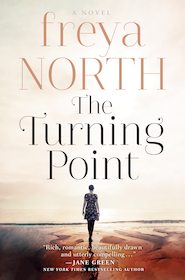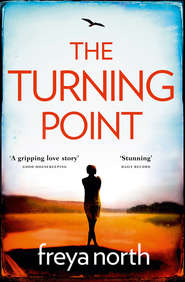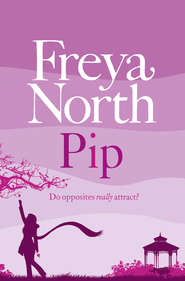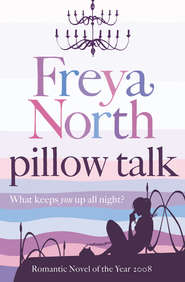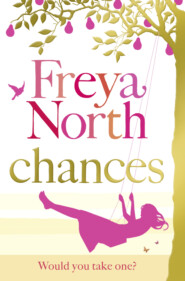По всем вопросам обращайтесь на: info@litportal.ru
(©) 2003-2024.
✖
The McCabe Girls Complete Collection: Cat, Fen, Pip, Home Truths
Автор
Год написания книги
2018
Настройки чтения
Размер шрифта
Высота строк
Поля
EPO, however, is for the most part undetectable – it is virtually impossible to tell the difference between a rider who has a naturally high haematocrit level because he trains at altitude and a rider whose levels are high because he’s pumped with EPO.
Can’t a limit be set?
The UCI, cycling’s governing body, have set one. But somewhat arbitrarily. If a rider’s red blood cell count is over 50 per cent, he is forced to take two weeks rest until his level is lower.
That’s a start.
Hardly. Say Didier’s natural haematocrit level is 42, and say Luca’s is naturally 48 – Didier can legally dope himself to Luca’s level, to within a hair’s breadth of the limit, suffer no penalties and reap the benefits of an artificially stimulated performance from a prohibited substance.
That’s cheating.
Correct.
So when does doping begin exactly?
Precisely.
And where does medical care end?
Exactly. Just before the infamous 1998 Tour – where brilliant riding was utterly overshadowed by the drugs scandal cum witch-hunt despite not one rider testing positive – well, another team approached me. The directeur made it very clear that I was to maximize the riders’ performances under stringent medical control.
What did that mean between the lines?
It meant that doping was part of team policy expressly to prevent the riders obtaining drugs for themselves and threatening their health in doing so.
You didn’t take the job, then.
God, no. I’m a conventional gentleman doctor and I’m also a romantic when it comes to sport – I like to admire supreme muscle tone without suspicion as to its provenance, to marvel at consummate athletic triumph without wondering if it’s synthetically enhanced.
Haven’t drugs always been synonymous with cycling?
In the 1930s, it was tiny doses of strychnine, soon enough and for a long time, amphetamines. Now EPO, human growth hormone. There’s PFC – a chemical relative of fucking Teflon. Oh, and the charming Belgian Pot.
Belgian Pot – surely a laid-back stoned cyclist is a contradiction in terms?
I’m not talking marijuana but a delightful combination of up to ten drugs – amphetamines, cocaine, heroin, analgesics, nasal or bronchial dilators, corticoids, morphine. Very pleasant.
Tell me that Belgian Pot isn’t rife?
It isn’t. But it’s there. Think of the pressures on a rider – not just the physical duress of three weeks, two mountain ranges and 4,000 k sandwiched between the equally taxing Giro D’Italia and the Vuelta Español. Consider the pressures of riding for a team sponsor on a short contract. Ride better, ride faster, reap glory. The pursuit of success can be just as addictive as substances.
But their health – are the riders stupid?
Not stupid. But consider, on the one hand, how many come from small, rural, simple backgrounds. They join a team. They ride for all they’re worth, their bodies are ravaged, their spirits are exhausted. The directeur, the doctor, the soigneur say, ‘Take this, it’s recuperative, it will help, it will do you good.’ Why wouldn’t they? These are the rider’s mentors, their father figures. They trust them and they depend on them.
And on the other hand?
Some riders proclaim themselves victims duped into dope but these are the same shrewd guys who ruthlessly negotiate huge contracts.
And you, Ben?
‘Trust me, I’m a doctor’ can be the most dangerous words in pro cycling and that frustrates and depresses me. Personally, I believe my duty as a doctor is ethical as much as medical. My obligation to my vocation, my employer and my riders is to ensure that my charges suffer as little and recover as quickly as possible. I study each man intensively and I administer a range of substances – nutritional, hormonal, anabolic – to maintain optimal balance. My scientific background enables me to do this – what the fuck and why the fuck would a rider know anything about how much beta-hydroxy beta-methyl butyrate and how often?
And Didier?
I can’t sleep, that’s why I’m in the corridor. Feeling impotent. Feeling pretty enraged. I can’t have drugs on my team. I will not tolerate such a flagrant abuse of the team ethos, of all the work I do to maintain my riders’ health. I fear Didier’s stupidity and selfishness – if he dares, if he even dares, he could put all our jobs, our credibility, the very future of the team, on the line – to say nothing of his health.
And Vasily?
Vasily has a checkered past. He is now a crusader. I’m hoping his experience and the respect he now has universally, will enlighten Didier.
Why comes temptation but for man to meet
And master and make crouch beneath his foot
And so be pedestalled in triumph?
But I don’t know how Robert Browning translates into Russian or French.
Through breathtaking scenery, incredible overhangs of rock, tunnels burrowing through the mountains, stunning bridges old and new, the peloton of the Tour de France headed for its brief sojourn in Switzerland. Luca and Didier had woken in contemplative self-engrossed moods, having gone to sleep much the same the night before. Neither were aware that their doctor had eavesdropped on their slumber. Now they were cycling quietly side by side in a throng of yakking Spanish riders; through the beautiful town of Seyssel, elegantly atop a picturesque river, through the lovely flower-festooned old village of Billiat where Sassetta took the hot-spot sprint while aged men waved slowly and widely. The Tour de France – every year, since these septuagenarians were boys; defining their calendar, compounding their patriotism, affirming their past and confirming the futures of their grandsons. There would always be the Tour de France. A birthright. A heritage. An heirloom. Wave and smile and then a leisurely reminisce over Pernod about Louison Bobet, Jacques Anquetil, Thèvenet, Hinault, Fignon. Look forward to next year. Vive le Tour.
After 126 kilometres, a sprint, a fourth-, a third- and a second-category climb, Didier and Luca snatched their musettes as they flew past the feed station.
‘I’m so tired,’ Luca said, ‘I’m not even hungry.’
‘Me too,’ Didier agreed. ‘Mind you, I’ve been fantasizing about a day-long MacDonalds binge when the Tour is over.’
‘I’m going to have oysters and champagne,’ said Luca, brightening up. It was the first thing either had said all day.
‘On Jules Le Grand’s expense account, no doubt,’ Didier tested.
Luca regarded him and shrugged. ‘What would you do?’
‘What you mean is, what do I think you should do,’ Didier responded astutely.
‘What should I do?’ Luca asked quietly.
‘Are you tempted?’
‘Fuck, man! Système Vipère!’ Luca exclaimed, as if resting his case.
‘Loads of money, cool hi-fi, great bikes, cool team strip, the greatest team in the world,’ Didier defined nonchalantly while Luca cycled a few metres ahead. ‘So why,’ Didier asked, catching up, ‘are you asking me what to do? Why aren’t you telling me that you’re already signed up, that the cap fits, that you’re a Viper Boy in the making? Why do you even need to ask?’
Luca sighed but decided instead to wonder why the spectators were waving ski poles. Didier let him sigh again before fixing him with a searching stare.
‘It’s blown my mind,’ Luca said honestly. ‘There has to be a catch.’
‘Did you see Le Grand this morning at the village?’ asked Didier, having waited for Jesper Lomers to overtake and be out of earshot.






